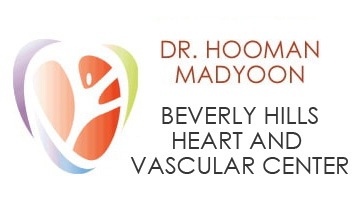Heart disease is the leading cause of death for both men and women in the United States. Some of the risk factors are genetic, but lifestyle choices and regular preventative care can have a serious impact on your likelihood to suffer the consequences of heart disease.The worst heart habits can negatively impact your overall health. But for the best heart attack treatment Beverly Hills has, BHVCI has you covered.
The Worst Heart Habits
By choosing a healthy diet, doing regular cardio exercises, and seeing your cardiologist for regular examinations, you are less likely to develop heart disease and more likely to catch it in time to receive vital treatment. Unfortunately, there are also several habits that can make the situation much worse.
Poor Dental Hygiene
Although scientists don’t fully understand the reason, there is a clear correlation between your oral health and your heart health. The primary explanation is that gum disease leads to inflammation. The inflammation in your gums may seem localized, but it also increases your body’s production of the C-reactive protein. This protein narrows the blood vessels.
Under normal circumstances, the body uses inflammation as part of its natural response to injury. The inflammation and production of the associated protein would decrease once the injury healed. However, gingivitis is a chronic condition that often goes untreated for years, contributing to a significant narrowing of your veins, which will negatively affect your heart health.
An Imbalanced Diet
The American diet is generally laden with carbohydrates, sugars, and fats. We tend to eat a much higher percentage of meat in our diet than doctors recommend, and our fruit/vegetable intake is minimal compared to many other diets around the world. Unfortunately, this is one of the many factors that may be contributing to higher rates of heart disease in the United States.
Fruits and vegetables contain a lot of fiber. It helps you feel full with fewer calories, regulates your bowel preventing over-straining, and many of them contain vital antioxidants as well as many important vitamins. Antioxidants are great for combatting free radicals in the body. Free radicals are typically associated with cancer but also have the ability to harden the arteries over time.
Sitting All Day
Millions of Americans work behind a desk every day. And this is one of the wrost heart habits. Even children spend too much time sitting at school. Yet science continues to show us that this is a really bad idea. Sitting for an extended period without bouts of activity to break it up negatively affects practically every system in the body: your muscles, your bones, your brain, your organs, all of them.
When it comes to your heart, the primary issue is that blood flow is decreased. Your heart rate is pretty slow when your body is doing practically nothing, and we often sit in ways that can limit blood flow to specific areas of the body. This lack of consistent flow allows fatty acids to build up in the bloodstream, leading to serious heart complications later in life.
Not Taking Preventative Care Seriously
Experts suggest that everyone should have a full exam and a round of bloodwork done at least once in their twenties. You can start with your general practitioner. But if you have a strong family history of heart disease, you should seriously consider meeting with a cardiologist to do your first examination. They’re specialized. So they’re more likely to notice something concerning that might slip past a doctor.
After you’ve had your first examination, doctors suggest doing a full examination once every 4 to 6 years. You should definitely have your heart rate and blood pressure checked for irregularities during your annual exam. Still, you should have your cholesterol and electrocardiogram done during that 4 to 6-year span to look more closely.
The Reality of Diagnosis
As scary as a heart disease diagnosis may be for you, it is always better to find it early. Your cardiologist can talk you through a whole host of options, including medications to manage your cholesterol or blood pressure as you address the lifestyle changes that need to happen. You may need additional treatment for a more immediate threat, such as deep vein thrombosis Beverly Hills, but your cardiologist will take you through every step to make sure you can enjoy a long, happy life.

